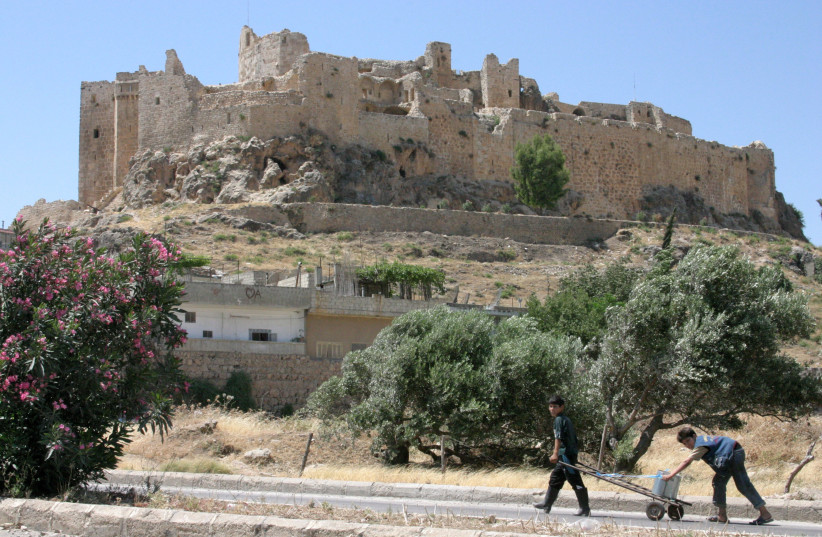Alleged Israeli airstrikes in June targeted three chemical weapons facilities in Syria, The Washington Post reported on Monday.
The June 8 airstrikes that targeted the three military targets near Damascus and Homs killed seven soldiers including a Syrian colonel who worked at a top-secret military lab, according to the report.
The officer, identified as Ayham Ismail, was reportedly stationed at a chemical weapons manufacturing facility in Masyaf as a military engineer.
The alleged Israeli airstrikes, which in the past have targeted pro-Iranian militias – Iranian proxies – based in Syria, were deemed unusual due to their targeting of Syrian military facilities.
The strikes were reportedly part of an Israeli campaign to halt attempts by Syria to restart its production of chemical weapons before any weapons could be made, two intelligence officers told the Post. A strike on an existing stockpile of nerve agents, or nerve gases, could release dangerous and lethal gases to nearby Syrian towns and villages in the area.

Israel ordered the airstrikes after intelligence reports suggested Syria was rebuilding its chemical weapons capabilities and after its military successfully imported a chemical that can be used to make sarin gas, four Western intelligence officers said, according to the Post.
A massive sarin gas attack carried out by Syrian President Bashar Assad’s regime in August 2013, during the Syrian Civil War, killed more than 1,400 civilians in the Damascus suburb of Ghouta.
In addition, there have been numerous reports of the use of chemical weapons during the civil war by both Assad’s regime and the Islamic State of Iraq and the Levant.
Two reports published last year spoke of four Syrian chemical weapons attacks against its own citizens in 2017 and in 2018, Israeli ambassador to the UN Gilad Erdan told the UN General Assembly’s First Committee in October, adding that the Assad regime had done this even though it had acceded to the Chemical Weapons Convention.
A report from Syrian state news agency SANA states that the June 8 airstrikes targeted the town of Sahnaya and sites belonging to the First Division in Al-Kiswah, as well as air defense batteries and a missile battalion belonging to the 155th Brigade north of Damascus.
Israeli officials declined to comment on the attacks. Syrian officials have denied using or making chemical weapons since 2013.
